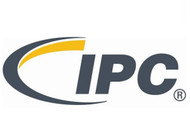What are the Benefits to IPC certification?
Posted by Staff - Soldertraining on Apr 29th 2022
Standardization of processes and procedures is crucial in the electronics industry to ensure the products' consistency, quality, and reliability. IPC is a global association that releases electronics-industry-adopted standards. IPC's internationally recognized industry-consensus standards help streamline and optimize the design, PCB manufacturing, and electronic assembly workflow. IPC consists of more than 4,000 member companies to make, use, specify, and design PCBs and assemblies. These companies range from automotive, computer, industrial equipment, aerospace and military, advanced microelectronics, telecommunications, and medical devices.
The IPC standards are acceptable codes that seek to "Build Electronics Better." Companies in the electronics industry face a continual threat from innovation, disruptions, and intense competition. Thus, they must effectively design, engineer, and test products to meet the time, cost, and compliance expectations and ensure customer satisfaction. With IPC standards, stakeholders can ensure superior quality, consistency, and reliability in PCB design and manufacturing. It reduces the risk of PCB failure, which can otherwise have debilitating consequences on the electronic product.
If you want to obtain certification in IPC standards, there is a provision to opt for IPC online training. It will allow you to enroll yourself in respective classes and take it from the convenience of your location and schedule. You can customize the training to meet your specific customer training requirements. The live training is delivered over the internet, and it is followed by online proctored testing. There are typically four levels of IPC certification. It includes:
- Certified IPC Specialist (CIS) to expand knowledge and ability within a specific standard.
- Certified Standards Expert (CSE) to develop in-depth knowledge and understanding of specific IPC standards (it does not focus on skill development).
- Certified IPC Trainer (CIT) to deliver and administer CIS level training and certification.
- Master IPC Trainer (MIT) to train CITs and CISs. Only employees of Licensed Training Centers can become MITs.
Benefits of Hiring IPC certified experts.
- There is a growing demand for consumer electronics. It is thus parallel to the demand for PCBs, which are a core component of most of these devices. IPC training and certification can help meet the growing tech needs by ensuring that more stakeholders have the necessary training and qualifications to release high-quality PCBs. They can thus enable effective standardization and bring success to this industry.
- The IPC standards set global quality requirements for electronics manufacturing. Hiring IPC-certified experts allows organizations to demonstrate to the current and potential customers that the business aligns itself with standardized and rigorous quality control practices. It helps facilitate better quality assurance initiatives to meet customer and regulatory requirements.
- Adhering to the documented IPC standards help effectively regulate the processes to minimize the possibility of failure and release high-quality product. The awareness and understanding of relevant standards help build consistency which is integral to PCB design and manufacturing. Moreover, it establishes a 'common language' across the department, defining terminologies, processes, and procedures to avoid any possible miscommunication. It results in enhanced collaboration and coordination, improving consistency. It contributes to better cost and time savings and effective resource usage.
To Conclude:
These are the various benefits of hiring IPC-certified experts. They can create optimal working practices and build a reliable environment, enabling the success of your industry. It helps them align their approach to the current market trends to help your company stay ahead of the intense competition.

